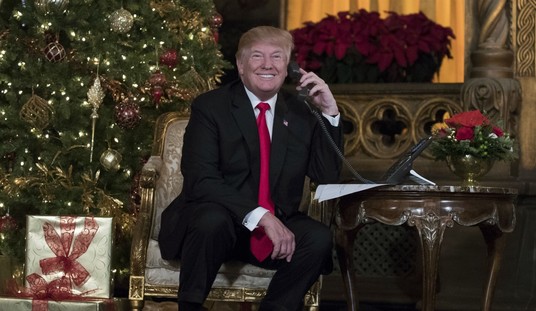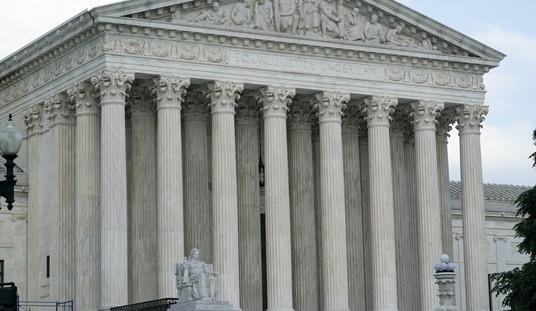I just received an email that Senator Jon Kyl sent out the below email to colleagues urging them to oppose a Rand Paul amendment to the PATRIOT Act that would protect gun rights.
The GOP in the Senate is encouraging colleagues to oppose this and, humorously, is doing nothing to take a stand on Paul Ryan‘s budget other than encouraging moderates to oppose it.
With friends like these . . .
The email is below. Note that the NRA has decided to, yet again on a matter involving the second amendment, sit on the fence.
“Senator Kyl wanted your boss to be aware of a possible firearms amendment that could be voted on today as part of an amendment agreement on the PATRIOT Act. Senator Kyl urges your boss to vote NO on the amendment (or YES on a tabling motion, if that is how the vote is structured). It is expected that the vote will be a 60-vote threshold.
Section 215 of the Patriot Act allows the government to obtain a court order for a subpoena of business records and other tangible things in the possession of third parties if the government proves to the court that there is: (1) probable cause that the target of its investigation is involved in international terrorism; and (2) the requested records are relevant to an international terrorism investigation. In addition, to protect records of firearms sales and other sensitive records, the Patriot Act requires that any request to the court for such records must first be approved by either the Director of the FBI himself or one of two other high-level officials. In light of these protections – judicial review, relevance to a legitimate investigation of a person who appears to be involved in terrorism, and high-level approval of any request for such information – it is extremely unlikely that this authority will ever be used to harass lawful gun owners, and, indeed, there is no evidence whatsoever that this authority has ever been abused in any way.
On the other hand, law enforcement has a legitimate need to know if a suspected foreign terrorist operating in this country has sought to or has successfully purchased a firearm. And, in order to protect the secrecy of such investigations and avoid disclosing the fact of the investigation to a suspected terrorist and his confederates, it is often necessary to use Patriot Act authorities, rather than other authorities, to conduct such investigations. Yet under the Paul amendment, for example, had the FBI been investigating Nidal Hasan, who murdered 13 U.S. servicemen at Fort Hood, Texas in 2009, federal agents would have been barred from using section 215 to learn whether Hasan had purchased the guns that he later used to commit that atrocity. The Paul amendment would prevent the United States from ever using Patriot Act authority to determine whether a suspected terrorist has sought to or has purchased a firearm.”
If you read that, it sounds reasonable, except that there are procedures in place for the FBI to obtain records that involve judicial review. The PATRIOT Act provision allows the FBI to obtain information on American citizens without any judicial oversight.
Below is Senator Rand Paul’s point by point briefing on what his amendment actually does without the heavy does of fear:
Sen. Paul USA Patriot Act Gun Records Amendment?05/25/11
Amendment provides that nothing in the USA Patriot Act overrides the McClure-Volkmer Firearm Owners Protection Act.
• In 1986, Congress enacted the McClure-Volkmer Firearm Owners Protection Act to limit BATFE access to 4473s and other gun records. Such records can only be viewed as part of a “bona fide criminal investigation,” in connection with a trace, or pursuant to an annual inspection.?
• Under McClure-Volkmer, the BATFE clearly could not seize every 4473 in the country because of a generalized terrorism investigation.?
• Amendment would make it clear that McClure-Volkmer is still applicable law and was not overturned by USA Patriot Act legislation.• McClure-Volkmer Firearm Owners Protection Act created a finely balanced system setting out the circumstances under which BATF can have access to gun records, and those circumstances where they are denied access.?
• Gun records can be investigated in connection with a bona fide criminal investigation, a trace, or a routine annual inspection. Negotiations with the Bureau of Alcohol, Tobacco & Firearms in 1984 went through session after excruciating session in order to arrive at this finely tuned balance -– which post-9/11 legislation inadvertently upset.
Hypothetical: Consider a situation in which Bureau of Alcohol, Tobacco, Firearms and Explosives (BATFE) goes to the “secret court” (the Foreign Intelligence Surveillance Act, or “FISA” court) and argues, without anyone else in the room, that ALL 4473’s should be seized as “business records” because they are relevant to a terrorism investigation. Paul amendment prevents this hypothetical scenario from becoming reality.• How the Patriot Act Inadvertently Changed the Standard for Obtaining Gun Records: Under the Patriot Act, the Government must show that there are reasonable grounds to believe that the records sought are relevant to a terrorism or foreign intelligence investigation.
• This is an extremely low hurdle, and could potentially encompass any and all gun records belonging to most U.S. citizens.
Paul Amendment ensures that this much lower “relevance” standard will not trump the McClure-Volkmer standard for obtaining gun records.













Join the conversation as a VIP Member